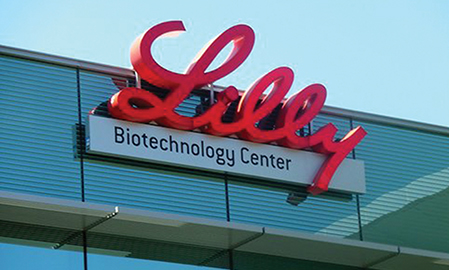Eli Lilly promised a further easing in commercial outlays as it draws down sales force activity and advertising spend for two blockbusters whose patent expiries are drawing nigh.
Total Q3 global revenue rose 6% over the same period in 2012 to $5.8 billion, Lilly said, slightly above analysts’ consensus estimate of $5.7 billion. It was driven by growth for depression med Cymbalta (up 11% to $1.4 billion), insulins, Animal Health (up 11% to $530.3 million), cancer drug Alimta (up 7% to $690.5 million), ED pill Cialis (up 9% to $526.7 million) and Tradjenta for diabetes. Nine-month revenue rose by 4% to $17.3 billion.
As promised during the company’s investor day presentation Oct. 3, cost-containment measures also continue. SG&A charges decreased by 6% to $1.7 billion, driven by a drawdown in selling activities prior to Cymbalta’s go-generic date of Dec. 11, and for Evista’s LOE coming in 2014.
Gearing up for the loss of Cymbalta exclusivity, “We already lowered sales force activity by 30%,” said CFO Derica Rice on a conference call with analysts. “And the removal of DTC ads will lessen the pressure on SG&A.” The company spent $249.6 million on DTC for the depression drug last year, according to Nielsen, down 15.5%.
Barclays analyst Tony Butler, who called the SG&A line “impressive” during the conference call, queried whether the firm could reduce these expenses further, as Rice had pledged, given the fact that it may be gearing up for two launches, possibly more, next year.
“We’re pleased with our performance but…we can always look to improve,” said Rice. “You will see our SG&A spend decline even further in 2014.”
During the quarter, GLP-1 med dulaglutide and oncology drug ramucirumab were submitted in the US and EU, for use in type 2 diabetes and advanced gastric cancer, respectively. The firm said that the FDA granted Priority Review status for ramu, and that it expects a decision in the second quarter of 2014.
Lilly is also awaiting an FDA decision on empagliflozin, an SGLT2 inhibitor for diabetes submitted to FDA earlier this year along with co-developer Boehringer Ingelheim.
R&D spend, Rice said, will decline as many of Lilly’s Phase III studies wrap up. Those include studies of ramucirumab, and one testing necitumumab in patients with stage IV metastatic squamous NSCLC. A head-to-head trial of dulaglutide vs. Novo Nordisk’s Victoza is set to read out in early 2014. The results will be important in terms of enabling Lilly to achieve optimal pricing and access for that drug.
Lilly also expects to report topline Phase III results for edivoxetine (depression) late this year or early next year, and in 2014 for its novel basal insulin.
From the December 01, 2013 Issue of MM+M - Medical Marketing and Media







